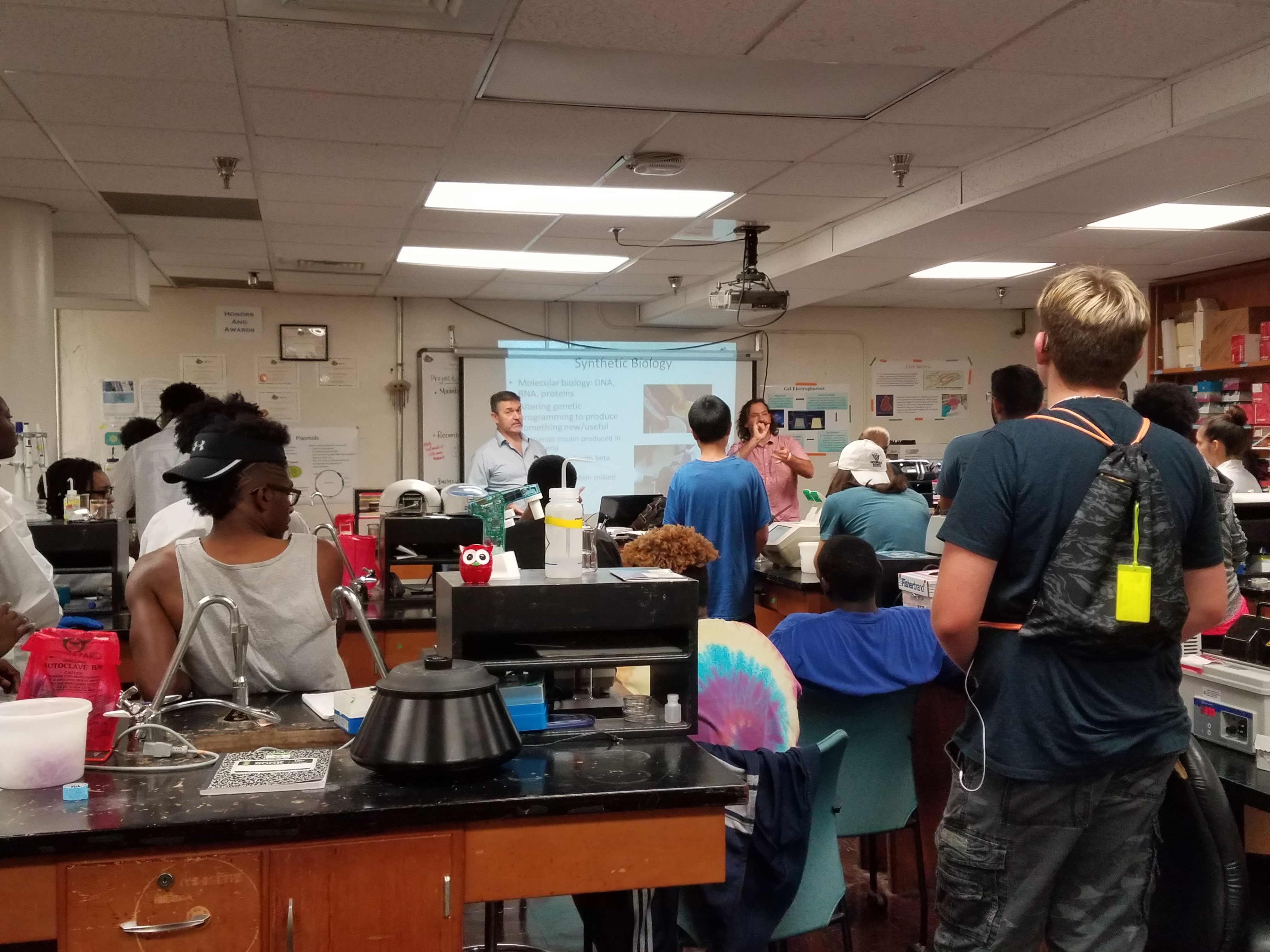| Line 180: | Line 180: | ||
<div class="span6"> | <div class="span6"> | ||
<div class="block no-spacing-l"> | <div class="block no-spacing-l"> | ||
| − | <img src="https://static.igem.org/mediawiki/2017/ | + | <img src="https://static.igem.org/mediawiki/2017/9/90/T--Georgia_State--Phosphate.png" class="spacing-b no-spacing-l" alt=""> |
| + | <h1 class="media-heading">Source</h1> | ||
| + | <p class="last">Source for picture of phosphate model: https://2017.igem.org/File:T--Georgia_State--Phosphate.png</p> | ||
</div> | </div> | ||
</div> | </div> | ||
Revision as of 20:51, 1 November 2017
Collaborations
"It is the long history of humankind (and animal kind, too) those who learned to collaborate and improvise most effectively have prevailed."
Charles Darwin
UVA Meet-Up
The University of Virginia iGEM team invited us along with William & Mary, University of Delaware, UNC-Asheville, and the University of Maryland to the Virginia Mid-Atlantic Meetup event. Each team gave a short presentation on their project. After every two presentations, there were break-out sessions. Most of the collaboration took place during the breakout sessions. Due to this opportunity, we were able to discuss and ask questions to the other teams about their projects. The discussions helped us think about our project on an introspective level. Through our conversations with William & Mary, we realized the importance of the rate of protein expression in a vector and its relation to our protein expression rates. Analyzing how each group presented improved our overall presentation technique. After every presentation and break out session the Community Bio Labs from Charlottesville presented and then we had one final breakout session. This break-out session was the most important because we were able to speak directly with someone who had used HCG and pregnancy tests as a detection device. The conversation made us think about the concentration levels pregnancy tests detect and how we may need to alter our detection mechanism.



Emory
Emory, this year, had a cool project that focused on an issue faced by water refinery plants. Emory found during their visit to their local WaterHub that a primary concern was to come up with an efficient way to deal with constant fluctuating orthophosphate levels. Emory, to address this problem, decided to experiment on increasing the efficiency of organisms to eat phosphate. We assisted Emory in this endeavor by working with four strains of Bacillus subtilis. Two of the strains were wild-type isolated from water donated by the Emory Waterhub, and two of the strains were commercially available Bacillus subtilis. The goal of our work was to see which strain could uptake the most phosphate. To test the bacteria we the protocol provided by Emory, see tab labeled Emory protocol. Then we modified the protocol, see modified protocol. And, finally, because we were lucky enough to visit the Georgia Aquarium a place with an abundant amount of water and a state of the art filtration system we asked the aquarium for some of their unfiltered and filtered water to see if they had some of the same phosphate problems.
MA6b1. cells
centrifuged 2500 rpm for 5 or 10 min depending on the sample
LB supernatant was dumped
cells resuspended in 30 mL of 1500 uM phosphate buffer
centrifuged at 2500 rpm for 10 min
phosphate buffer supernatant dumped
cells resuspended in 32 mL of 1500 uM phosphate buffer
1 mL of resuspended cells put into 1.5 mL tubes labeled with the strain and time point
tubes centrifuged at 10k rpm for 5 mins at the specified time point
specified time points
t0= 30 mins
t2= 1 hr
t3= 2.5 hrs
t4= 24 hrs?
Leave overnight in a mixer at 37 C.
Next day, centrifuge 96 well plate.
Recipe for Malachite Green:
20 uL of the supernatant of each sample put into a new 96-well
60 uL of DI water added to each well with the sample to dilute
20 uL of Malachite green reagent added
Malachite Green -
500ul Malachite Green
125ul Ammonia
10ul Tween

Source
Source for picture of phosphate model: https://2017.igem.org/File:T--Georgia_State--Phosphate.png
GCDHH
Over the summer the Georgia Center of the Death and Hard-of-Hearing (GCDHH) reached out to our GSU iGEM team to learn about synthetic biology and how they could be a part of the researching world. Without knowing how to approach the obstacle of communicating with one another, we reached out to our Department of Education to find out the best way to present our information to the incoming students. Putting the guidelines we received, we hosted a successful open lab day for the GCDHH students. We had interpreters signing as we were explaining the basics of our lab and the undergraduate research that iGEM has to offer. When we initially agreed to hosting the students, we had no idea how much it would impact our view of synthetic biology. We believe that the knowledge and experience we gain from being a part of iGEM should be accessible to everyone that has an interest. Furthermore, we have created our presentation to be more accessible and have gotten an opportunity to learn sign language.




